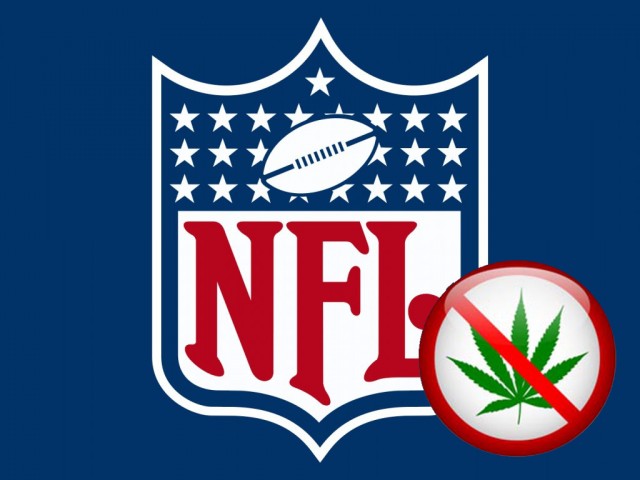 Ex-NFL player and current sports columnist, Ryan Riddle, wrote a great piece on an NFL drug policy that he calls “hypocritical and harmful.” Indeed, a new lawsuit is being levied against the NFL by ex-players who say they were intentionally deceived by team physicians and are now suffering the ravages of the narcotics.
Ex-NFL player and current sports columnist, Ryan Riddle, wrote a great piece on an NFL drug policy that he calls “hypocritical and harmful.” Indeed, a new lawsuit is being levied against the NFL by ex-players who say they were intentionally deceived by team physicians and are now suffering the ravages of the narcotics.
Go back and watch the locker room scenes from just about any movie that realistically portrays football, (i.e. Any Given Sunday, Varsity Blues, etc.) and you’ll see things that will make you cringe.
You’ll see players with gruesome injuries being given handfuls of pain pills, drug cocktails being injected into players, doctors subverting the Hippocratic oath and basically lying to a player about the severity of their injury, just so they can get back out on the field. Sadly, this is not solely the wheelhouse of fiction. This is really going on in NFL locker rooms. Did you know that many team doctors pay the team for the right to be the team doctor? Me neither. That is a staggering conflict of interest and one that I am literally appalled the NFL condones.
Riddle writes, “…players claim severe injuries, such as broken legs and ankles, were intentionally kept from guys who were instead fed and/or injected with large quantities of medication like Cortisone, Toradol and Vicodin to mask the pain, as well as sleep aids such as Ambien. Some say that after years of free pills from team physicians, they retired from the league addicted to the painkillers and are now facing troubling health consequences such as kidney failure and other debilitating conditions.”
More about Toradol: Combined with a high-dose of vitamin B-12 and injected into the buttocks or shoulder, players referred to it as “T-Train.” Take a shot of T-train and you won’t feel pain until you wake up the next morning, or so the locker room legend related. Nowadays, players who rode the T-Train frequently are exhibiting many health issues.
However, it is unfair to completely place the blame on any one set of shoulders. After all, many players fully know that they might be a broken, used-up husk of a person after football, and they would happily consent to drugs that keep them on the field. The issue, for me, is a lack of informed consent. A person should know what’s being put into their body.
There is much, much more to say about this issue but I want to stay on point. Why, in a league that (seemingly) so easily turns its head and recklessly endangers its players with heavy narcotics, are other players (like Josh Gordon) being suspended from playing for using cannabis? Just for clarity, the NFL (acquiescing through silence) is just fine with T-Train and Cortisone shots or handfuls of Vicodin, but marijuana is a step too far.
As Riddle phrases it, “…despite the stigma attached with marijuana, one thing has become abundantly clear: Opting for pot is a far better alternative than handfuls of Vicodin and Toradol. As many already know, THC, the active ingredient in marijuana, has been known to manage pain, help with sleep and ease the stresses associated with football. Obviously, smoking before a game or practice is a horrible idea, but before bed or during times of leisure is another thing entirely.
The hypocrisy of punishing guys for marijuana use when much more damaging drugs are being passed out like candy around the NFL is a prime example of the arbitrary nature in which the league rewards and punishes player behavior… It’s worth adding that there are no known long-term health risks associated with marijuana use. In fact, a UCLA study back in 2006 concluded that heavy marijuana use does not lead to lung cancer. The study also suggests that pot may surprisingly inhibit the growth of cancerous tumors.
To be clear, I’m in no way advocating that NFL players take up pot as an alternative to prescription pain medication. I simply don’t see how we can take a year out of a man’s career for inhaling something that sprouts straight from the earth, when the real filth of the NFL’s drug habit has been indoctrinated into locker room culture for years.”
This is far from a black and white situation. To be sure, there are players and doctors and team officials who are acting responsibly and managing their pain intelligently. I can’t claim expertise on NFL bylaws, nor am I a physician, but any one can see the arbitrary and imbalanced mentality at work when T-Train is acceptable and cannabis is vilified. Pro-pot or not, simple rational thought can see that, at the very least, pot should be allowed for players if they are allowed (sometimes encouraged) to take hard-core, kidney-shredding chemicals.









